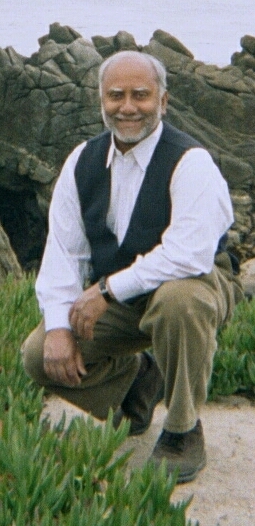The Second Disaster: Role of class and caste12
Human rights of tsunami survivors
were neglected and abused, reports
ActionAid International
From an ActionAid International Press release dated Friday, Jan. 27, 2006
“They held their guns and said if I didn’t leave I would join those who died in the tsunami. We have lost our families and now we are having our homes stolen.” – Daeng, tsunami survivor, Thailand
A five-country study by international charities ActionAid, People’s Movement for Human Rights Learning, and Habitat International Coalition-Housing and Land Rights Network has revealed how, after the December 2004 tsunami, governments frequently ignored human rights principles and failed to protect survivors from discrimination, land grabbing and violence.
The report criticises official relief, compensation and rehousing programmes on a number of counts including forced relocation, shoddy construction, and neglect of the needs of vulnerable groups including women, children and ethnic minorities.
The study of more than 50,000 people, in 95 towns and villages, was conducted in November 2005. It found that in many places, survivors had been driven from land, cut off from their livelihoods, and denied food, clean water and a secure home.
Particular concerns are:
Land: ‘Buffer zones’ have been used to remove people from coastal areas on the pretext of safety. This has jeopardised the livelihoods of those who rely on the sea for a living.
Governments have stood by or been complicit as land has been grabbed and coastal communities pushed aside in favour of commercial interests.
At Manginpudi Beach village, Andhra Pradesh, India, residents were moved inland two kilometres from their original village, making way for new tourist resorts.
Housing: Overcrowding and inadequate lighting has left women and children exposed to abuse.
Shoddy construction and lack of toilets and running water has resulted in disease and left people in inhuman conditions.
At Namunaghar camp in the Andaman and Nicobar Islands, each family is allocated its own toilet, but they are one kilometre away.
Livelihoods: People displaced from their homes and land have been left with no means to earn a living.
Government employment initiatives had begun in only a third of the villages surveyed – none in India and Indonesia.
Compensation programmes have ignored the needs of vulnerable groups including women, farm labourers and migrant workers. In Thailand, migrant workers without work permits have been unable to obtain compensation.
Women: Widows and other single women have frequently been denied compensation which has almost always been handed out to male members of the family.
Housing design and location has ignored women’s needs, removing their privacy and security. “They put me in a temporary camp by the highway,” said Hermiani at Nyak Makam shelter in Indonesia, “men would come into the tent and ask for sex.”
Discrimination: Deep-rooted inequalities based on race, sex, ethnicity and legal status have been magnified by discriminatory policies and practices. Groups experiencing discrimination include Mokens (‘sea gypsies’) in Thailand, dalits in India and war-displaced people in Sri Lanka.
Miloon Kothari, UN Special Rapporteur for Adequate Housing and sponsor of the report, said: “Failure to immediately comply with human rights standards will deepen the human-induced tragedy already inflicted on the survivors of the tsunami.”
The report offers practical recommendations for governments and others responding to future disasters, but says it is not too late for governments, NGOs and affected communities to take action to protect the rights of tsunami survivors.
ActionAid’s chief executive, Ramesh Singh said: “Lessons from this report are for everyone involved in responding to disasters but it is governments who are ultimately responsible for upholding human rights. A major effort is required to correct the wrongs that characterise the first year of tsunami response. The report findings represent an opportunity to put things right.”
NOTES TO EDITORS
Research was conducted in Thailand, Indonesia, Sri Lanka, India, and the Maldives.
The report was scheduled to be launched at 12:45 EST on 1 February at an invitation-only briefing at the United Nations headquarters, New York. Watch the webcast of the briefing at http://www.un.org/webcast.
ActionAid Tsunami Information Centre: http://tsunami.actionaid.org.uk/
ActionAid International (www.actionaid.org) is a non-governmental organisation which directly assists more than 13 million of the world’s poorest and most disadvantaged people in 45 countries worldwide. It is actively involved in providing long-term assistance in six tsunami-affected countries: India, Sri Lanka,The Republic of Maldives, Thailand, Indonesia, and Somalia.
PDHRE, People’s Movement for Human Rights Learning (www.pdhre.org) is a non-profit, international service organisation that works with its network of affiliates — primarily women’s and social justice organisations to develop and advance pedagogies for human rights education and learning relevant to people’s daily lives in the context of their struggles for social and economic justice and democracy.
Habitat International Coalition (HIC) is an independent, international, non-profit movement of over 450 members specialised in various aspects of housing and human settlements. The Housing and Land Rights Network (HLRN, www.hlrn.org) as an integral part of HIC advocates for the recognition, defence and full implementation of the human right to adequate housing, which involves securing a place for all individuals and communities to live in peace and dignity.



Reader Comments